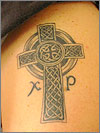Part of our discussion here is the nature of truth and knowledge. Is truth and knowledge static and absolute, or is it fluid and relative? Or is it both according to context? I am in no way an expert in philosophy, but I think some basic understanding helps in this conversation. I'll just mention 2 areas and see how they apply.
1) Epistemology (how can we know things?) Here's a textbook definition:
"Epistemology is the branch of philosophy that studies knowledge. It attempts to answer the basic question: what distinguishes true (adequate) knowledge from false (inadequate) knowledge? Practically, this questions translates into issues of scientific methodology: how can one develop theories or models that are better than competing theories? It also forms one of the pillars of the new sciences of cognition, which developed from the information processing approach to psychology, and from artificial intelligence, as an attempt to develop computer programs that mimic a human's capacity to use knowledge in an intelligent way.
When we look at the history of epistemology, we can discern a clear trend, in spite of the confusion of many seemingly contradictory positions. The first theories of knowledge stressed its absolute, permanent character, whereas the later theories put the emphasis on its relativity or situation-dependence, its continuous development or evolution, and its active interference with the world and its subjects and objects. The whole trend moves from a static, passive view of knowledge towards a more and more adaptive and active one."
So our epistemology (we all have one) influences how we see issues and determine the rightness or wrongness of any situation. Sometimes we may see things as absolute, while other times relative to the context. You have to decide what your epistemology is.
2) The Law of Non-Contradiction (Can something be true and not-true?) Textbook definition:
"Law of Non-Contradiction: (a) Not (p and not p) or (b) (for all x) not (x is P and x is not P). It is not possible that something be both true and not true at the same time and in the same context. I think the notion of time is more inherent in the Law as we normally understand it , but that the notion of context is equally important.
Example: A table can not be both made entirely of wood and not made entirely of wood.
Why do I take the position I do on this church issue that it is preference? Because of the 2nd part of this statement "at the same time in the same context". I think that different structures are valid in certain time and contexts according to the purposes of God. In Scripture we see God use different strategies and structures. One time he judges humanity and floods them off the earth. Then determining to never do that again, he extends mercy when judgment is called for again. One time and context, he reveals Himself and offers covenant relataionship through a particular people (Israel) and in another time and context he reveals Himself and offers covenant relationship through Jews and Gentiles. God does not contradict himself ever at the same time and context. He acts with wisdom and purpose.
So if we have differences, we have to be very specific. Any structure that advocates a "Reductionist" gospel, which reduces Christianity to only about forgiveness of sins and settling the heaven or hell question is faulty and inadequate in my opinion. It is inferior to the Gospel which is about the re-formation of the heart and our entire being. We are "in Christ" not to just go to heaven, but to finally become like him, to become who we were created to be and heaven is the fullness of that experience. We are on a journey back to the Garden to become whole creatures, transformation is at the heart of Christianity, not just redemption.
Barry and I share different ecclesiastical structures and assumptions about the world and context we live in, but we are pretty similar where it comes to the Gospel. We believe in redemption and transformation and contextually speaking I can say that I've seen the fruit of his labors in the form of real people.
My epistemology says that I can't have enough ultimate knowledge to know that what I'm doing is the only "right" thing, but I can tell you why I choose it and why in my time and context that I'm not leading in other church structures. I think we often make well informed decisions by choice and preference than with absolute knowledge. Part of my job as a pastor is to interpret the times I live in and where the Spirit is leading and act accordingly.
I'm sure I just opened 12 dozen more cans of worms so let's see how they taste.
peace,
Subscribe to:
Post Comments (Atom)



1 comment:
I absolutely match with your post.
Post a Comment